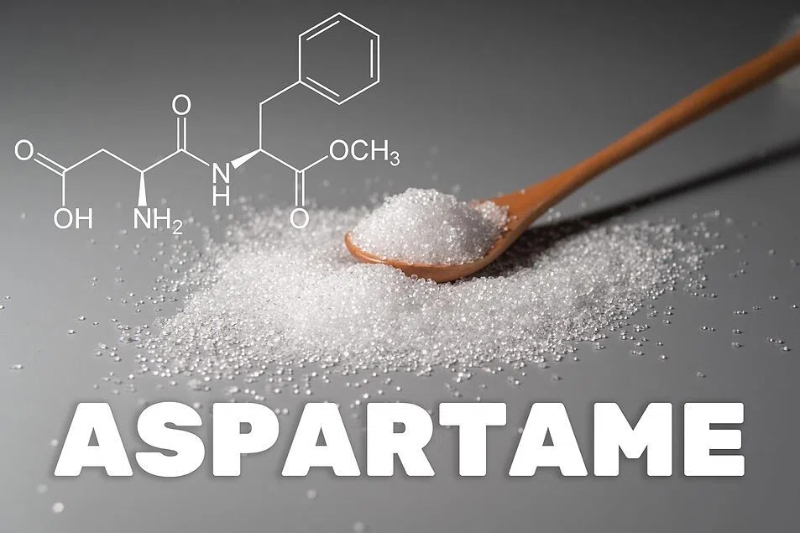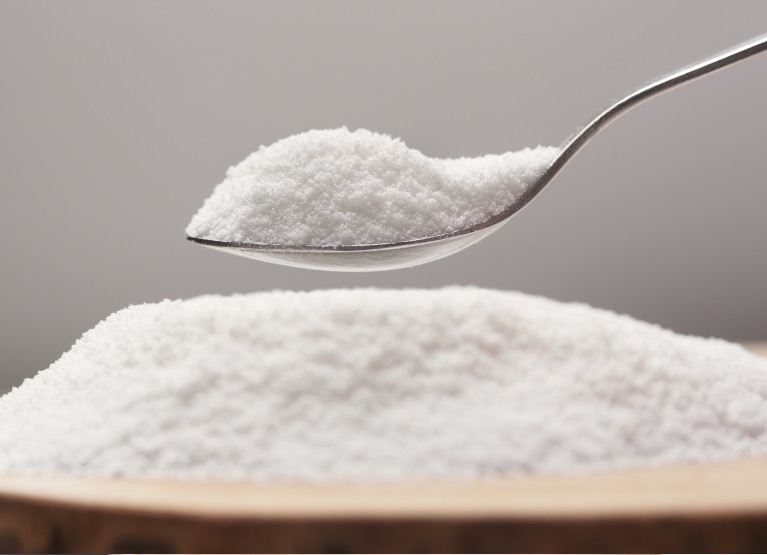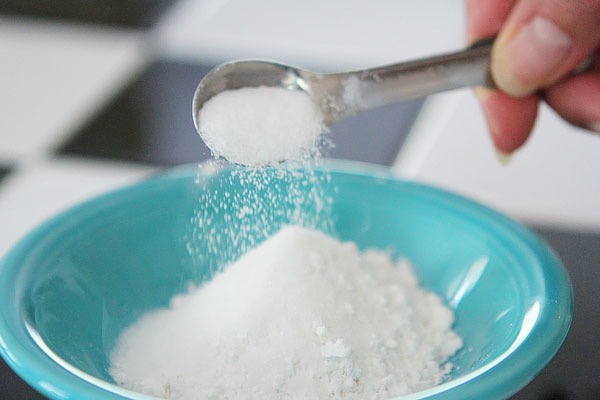







Content Menu
● Chemistry and Digestion of Aspartame
● Comparing Aspartame With Other Sweeteners
● Clinical Evidence: Does Aspartame Cause Gas?
>> Gastrointestinal Symptoms in Sensitive Individuals
● Aspartame and the Gut Microbiome: New Scientific Insights
● Regulatory and Safety Perspectives
● Real-World Experiences: What Consumers Report
● Aspartame in Special Populations
>> People With Digestive Disorders
>> Pregnant and Lactating Women
● Aspartame's Metabolic and Health Effects
>> Short- and Long-Term Safety
>> Interactions With Other Dietary Components
● Practical Takeaways for Consumers
● FAQ
>> 1. Does aspartame cause gas for most people?
>> 2. Why do some people report bloating with aspartame?
>> 3. Is there a difference between aspartame and sugar alcohols like sorbitol?
>> 4. Can aspartame affect people with irritable bowel syndrome (IBS)?
>> 5. Is it safe to consume aspartame every day?
Aspartame is one of the globe's most popular low-calorie sweeteners, used in thousands of foods, beverages, and even certain medications. Developed in the 1960s, this artificial sweetener is approximately 200 times sweeter than sucrose. Because aspartame delivers sweet taste with negligible calories, it has become a staple ingredient in diet sodas, sugar-free desserts, chewing gums, tabletop sweeteners, and countless low-calorie or sugar-free products. Aspartame is especially favored among individuals seeking to cut sugar intake—such as those managing diabetes, obesity, or metabolic syndrome—or people who simply wish to reduce their caloric consumption.
Despite its widespread use and basic safety endorsement by numerous global health authorities, certain concerns persist among consumers. One such question is whether aspartame can cause gas and bloating, or other digestive troubles. Myths about aspartame often circulate, especially online, prompting confusion or unwarranted fear among the public. Understanding the facts about aspartame—how it is digested, how it compares with other sweeteners, and what scientific studies actually show—is crucial for consumers seeking to make informed dietary decisions.

Chemically, aspartame is a methyl ester composed of two amino acids: aspartic acid and phenylalanine. Unlike sugar alcohols such as sorbitol and xylitol (which are poorly absorbed), aspartame is broken down completely in the digestive tract after ingestion. Here's how aspartame is processed in the human body:
- Upon consumption, aspartame is quickly hydrolyzed in the small intestine by esterases and peptidases.
- It splits into three components: aspartic acid, phenylalanine, and methanol. Each of these is naturally found in other foods and beverages, and their overall concentration from typical aspartame intake remains far below toxic thresholds.
- The body absorbs these breakdown products from the small intestine; only trace amounts (if any) progress to the colon.
This series of steps contrasts sharply with the digestion of polyols—such as sorbitol or maltitol—where a significant proportion passes undigested into the colon. Polyols are then fermented by gut bacteria, producing gas (mostly hydrogen and methane) and short-chain fatty acids, frequently causing flatulence and bloating.
Aspartame's rapid and almost complete absorption means little, if any, unaltered aspartame reaches the large intestine. Since the large intestine is the primary site of bacterial fermentation and subsequent gas production, aspartame rarely causes flatulence in the average consumer.
For evaluation, it's helpful to compare common sweeteners regarding their digestion and potential for causing gas:
- Aspartame: Almost entirely absorbed after breakdown; minimal undigested residue reaches gut bacteria. This leads to negligible gas for most people.
- Sugar Alcohols (e.g., sorbitol, mannitol): Partially absorbed, with the excess fermented by colonic bacteria, resulting in significant gas and sometimes diarrhea.
- Stevia Extracts: Not fermentable by colonic bacteria and not linked with gas production.
- Sucralose and Acesulfame K: Poorly metabolized and mostly excreted, but also not strongly associated with gas.
Most rigorous clinical studies corroborate that aspartame is digested almost completely in the upper gastrointestinal tract, producing no appreciable flatulence except (rarely) in sensitive individuals or those consuming exceptionally large amounts. Surveys and self-reports usually highlight sugar alcohols as the top culprits for gas and digestive discomfort, with aspartame only sporadically noted.
However, some controlled animal and human studies suggest that aspartame consumption can subtly alter the gut microbiome. For example, experimental research has found that even low-dose aspartame increases the total number of certain gut bacteria, such as Enterobacteriaceae and Clostridium leptum. Investigators have observed that in high-fat diet scenarios, aspartame can dampen some typical changes in gut flora and elevate short-chain fatty acids, such as acetate, butyrate, and notably propionate.
While propionate is a gluconeogenic substrate (meaning it can influence blood sugar), these changes should not generally produce outright digestive discomfort or increased flatulence in healthy subjects. Still, in sensitive populations or at very high intake levels, shifts in gut microbial composition or fermentation patterns may lead to rare cases of bloating or gassiness.
A small subset of individuals might feel digestive upset, including mild gas, after consuming aspartame-containing foods. Reasons may include:
- Functional gastrointestinal disorders: People with irritable bowel syndrome (IBS) or similar conditions often report non-specific sensitivity to a range of dietary substances, including aspartame.
- Altered gut microbiome: Some evidence links prolonged sweetener use with subtle increases in bacteria associated with gas and inflammation, especially in the context of other dietary or health conditions.
- High intake: Daily consumption far above recommended levels may, in theory, introduce enough breakdown products or slight changes in gut flora to elicit symptoms, but in practice, most people could not realistically consume such quantities.
Cutting-edge research is uncovering how non-nutritive sweeteners affect gut bacteria and wider metabolic health. Recent studies show divergent effects of sweetener types on microbiome composition, diversity, and function. Key findings include:
- Bacterial Diversity: While certain artificial sweeteners dramatically reduce the richness of small bowel bacteria, aspartame often leaves overall bacterial richness similar to that of non-users.
- Microbial Pathways: Research has identified the enrichment of specific microbial pathways (such as cylindrospermopsin production) among users, but the full implications for health remain unclear.
- Inflammation and Disease: Some lab and animal investigations suggest that aspartame may promote the proliferation of bacteria that produce proinflammatory compounds; in groups with pre-existing conditions like inflammatory bowel disease (IBD), aspartame consumption has correlated with higher incidents of bloating and abdominal discomfort.

Aspartame's safety is reviewed frequently by international agencies, including the FDA, European Food Safety Authority (EFSA), and World Health Organization (WHO). The consensus is that aspartame is safe for the general population, aside from individuals with phenylketonuria (PKU), who must avoid it altogether due to their inability to metabolize phenylalanine. Regulatory reviews have consistently found no evidence for widespread digestive problems at normal consumption levels.
However, in July 2023, the WHO's International Agency for Research on Cancer (IARC) classified aspartame as a “possible carcinogen” based on limited evidence, largely concerning high consumption and rare cancers such as liver cancer. Nevertheless, the Joint FAO/WHO Expert Committee on Food Additives (JECFA) reaffirmed the acceptable daily intake and stated that occasional or moderate use of aspartame is not a cause for concern for most people.
While robust scientific evidence indicates that aspartame is among the least likely sweeteners to cause gas, individual experiences do vary. Online forums and consumer surveys contain anecdotes of bloating, mild transient abdominal discomfort, or irregular digestion linked to consumption of aspartame-sweetened sodas and snacks. However, such reports are far less frequent compared to those involving sugar alcohols or even high-fiber ingredients.
Most people who switch from high-sugar to aspartame-based products for weight management notice a reduction, not an increase, in digestive troubles, unless high levels of intake are sustained or the switch is coupled with increased fiber or polyol consumption.
Children and the elderly are more susceptible to the volume and composition of what they ingest. For healthy individuals in both groups who don't have PKU, aspartame can be part of the diet with negligible risk of gas.
Individuals with IBS, inflammatory bowel diseases (Crohn's disease, ulcerative colitis) or general gut sensitivity may observe symptoms when trying new foods or sweeteners, including aspartame. However, scientific studies don't identify aspartame as a main trigger for gastrointestinal complaints in these groups compared to other sweeteners.
No credible data suggests aspartame in moderate amounts causes digestive discomfort in pregnant or breastfeeding women without PKU. Regulatory bodies find no distinctive digestive risks for this population, and the breakdown products of aspartame do not accumulate to dangerous levels in either mother or child.
Aspartame is metabolized quickly and does not accumulate in the body. Its metabolites—aspartic acid, phenylalanine, and methanol—are commonly consumed in much higher amounts from protein-rich foods, fruit, and vegetables. Most research finds no direct links between aspartame and major health risks for the general population.
That said, some new research raises the possibility that regular, high intake could contribute to subtle changes in insulin sensitivity, glucose metabolism, and the composition of gut bacteria associated with metabolic health. These changes may play a role in glucose tolerance, obesity, and inflammation, but scientists agree that definitive human data is lacking. More studies are ongoing.
Aspartame is frequently found in combination with other low-calorie sweeteners, preservatives, and flavorings. Interactions between these additives may also slightly influence digestion or gut microbiota. For example, beverages that combine aspartame, acesulfame-K, and polyols could, in theory, modestly increase one's risk of bloating or mild gas due to the effects of the polyols rather than the aspartame itself.
- For the vast majority, aspartame does not cause gas or bloating. Its rapid absorption prevents fermentation and gas production in the gut.
- Occasional, mild symptoms are possible, particularly in highly sensitive individuals or those with functional bowel disorders, though these are uncommon.
- Sugar alcohols and fiber-rich ingredients are far more likely to trigger gas, and individuals prone to such symptoms should read ingredient labels carefully.
- Allergy or rare intolerance to aspartame is possible but extremely rare; most apparent reactions are not confirmed on challenge testing.
- As with all foods and additives, moderation is prudent—staying within regulatory daily intake limits ensures maximum safety and comfort.
Aspartame is a widely used, low-calorie artificial sweetener that generally does not cause gas or bloating in healthy individuals. Unlike poorly absorbed sugar alcohols, aspartame is broken down and absorbed almost entirely in the upper digestive tract. Large-scale reviews by health authorities consistently find it safe when consumed within established guidelines. Scientific evidence shows aspartame does not increase intestinal gas production for most people, though rare cases of digestive sensitivity are reported, particularly among individuals with functional bowel disorders and pre-existing gut problems. Ongoing research explores aspartame's nuanced effects on gut bacteria, but current data supports its continued use as a sugar substitute with only minimal risk of gas. As with any ingredient, individual responses vary, and consulting healthcare providers for persistent symptoms is always recommended.

No. Most people do not experience gas from aspartame because it is almost fully digested and absorbed before reaching the colon, which is where intestinal gas is made.
Some individuals, especially those with sensitive digestive systems or functional gastrointestinal disorders, may notice mild bloating or discomfort when consuming any artificial sweetener, including aspartame. However, aspartame is much less likely to cause this than polyol-type sweeteners.
Yes, the digestive process is completely different. Sugar alcohols are not fully absorbed and are fermented by colonic bacteria, commonly causing gas and diarrhea. Aspartame does not undergo this fermentation, so it rarely produces gas.
Although a small subset of IBS sufferers may experience increased sensitivity to artificial sweeteners, scientific studies do not emphasize aspartame as a significant trigger compared to sugar alcohols and poorly absorbed fibers.
Yes, as long as total intake remains below regulatory limits (such as 40 mg per kg bodyweight per day, the limit set by EFSA). Occasional, moderate daily use is well tolerated by most healthy individuals.
[1](https://journals.plos.org/plosone/article?id=10.1371%2Fjournal.pone.0109841)
[2](https://www.cedars-sinai.org/newsroom/research-alert-artificial-sweeteners-significantly-alter-the-small-bowel-microbiome/)
[3](https://pmc.ncbi.nlm.nih.gov/articles/PMC11501561/)
[4](https://pmc.ncbi.nlm.nih.gov/articles/PMC10144565/)
[5](https://www.nature.com/articles/s41598-025-06193-5)
[6](https://www.sciencedirect.com/science/article/pii/S0899900723002654)
[7](https://www.efsa.europa.eu/sites/default/files/corporate_publications/files/factsheetaspartame.pdf)
[8](https://academic.oup.com/jbmrplus/article/8/8/ziae082/7695363)
[9](https://www.fda.gov/food/food-additives-petitions/aspartame-and-other-sweeteners-food)
[10](https://www.who.int/news/item/14-07-2023-aspartame-hazard-and-risk-assessment-results-released)
